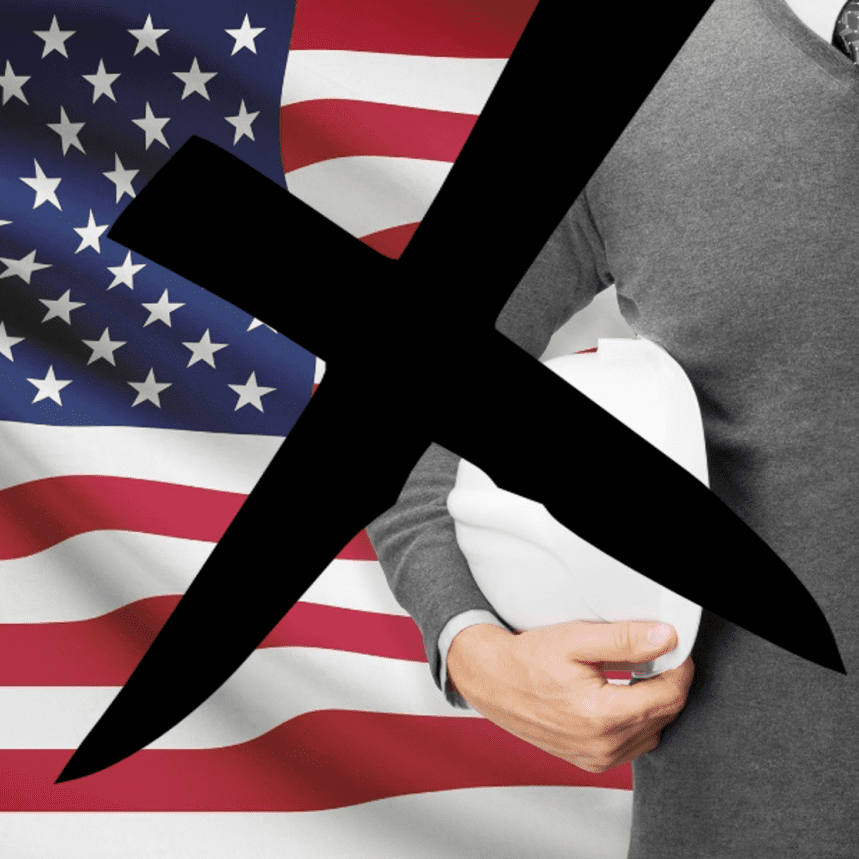Insights < BACK TO ALL INSIGHTS
The Blacklisting Rules Are Coming: What Federal Contractors Need to Know
The Blacklisting Rules Are Coming: What Federal Contractors Need to Know
By: George Calhoun
The Federal Acquisition Regulation final rule implementing the “Fair Play and Safe Workplaces” Executive Order 13673 was issued on August 25, 2016, and the rule goes into effect on October 25, 2016. This new regulation presents a significant change – and potential challenge – for major government contractors.
President Obama signed Executive Order 13673, often referred to as the “Blacklisting” order, on July 31, 2014. The stated goal of the order is to “increase efficiency and cost savings in the work performed by parties who contract with the Federal Government by ensuring that they understand and comply with labor laws.” On their face, the Order and regulations provide new instructions for Federal contracting officers to consider a contractor’s compliance with certain Federal and State labor laws as a part of the determination of contractor “responsibility” that contracting officers must undertake before awarding a Federal contract. But what do the Blacklisting Order and the final rule really do?
Mandatory Reporting of Labor Law Violations
The new rule imposes significant reporting obligations on federal contractors during the procurement process. Ultimately, contractors and subcontractors will need to report three years of labor law violations once the rule is fully in effect. Labor law violations encompass violations of the Fair Labor Standards Act, the Occupational Safety and Health Act, Title VII of the Civil Rights Act of 1964, the Americans with Disabilities Act, and ten other federal laws and orders. According to the final rule, there are three types of actions that constitute reportable violations: “administrative merits determinations,” arbitral awards or decisions, and civil judgments. Contractors must supply basic information about the violation, including the nature of the violation and identifying information, and also have the option of submitting evidence of mitigating factors and remedial measures. This information will be stored on a publicly available, searchable website.
Acknowledging this reporting is a significant burden, there is a phase-in period to allow companies to get up to speed. When the rule becomes effective on October 25, 2016, the reporting requirements will only be effective for procurements of $50 million or more and only for prime contractors. But after six months, on April 25, 2017, contractors bidding on prime contracts of $500,000 or more will need to make the relevant disclosures. On October 25, 2017, subcontractors become subject to the rule as well. Additionally, while the reporting time frame is ultimately the three preceding years, for the first year the rule is in effect, reporting will only reach back for one year. The reporting window will be expanded by a year each year thereafter, until the three-year reporting period is completely phased in on October 25, 2018.
New Paycheck Transparency Requirements
The Blacklisting Order and final rule also institutes requirements for contractors in how they communicate wage information to workers. As of January 1, 2017, contractors and subcontractors must provide a detailed wage statement, including hours worked, overtime hours, rate of pay, and any additions made or deductions taken, to every worker performing under a federal contract. Additionally, prior to beginning work, the contractor must indicate to the worker whether they will be considered an employee or an independent contractor, and if an employee, whether they are exempt or non-exempt. These notifications must be provided to workers in English and any other language used by a “significant portion” of the workforce.
Restrictions on Pre-dispute Arbitration
On the same date the reporting requirements begin the phase-in process – October 25, 2016, the requirements surrounding arbitration agreements will go into full effect. Companies with federal contracts or subcontracts of $1 million or more may not require workers to enter into pre-dispute arbitration agreements for disputes based on Title VII claims or torts related to sexual assault or harassment. The only exception will be for employees covered by a collective bargaining agreement that has negotiated the contract with an agreement to arbitrate prior to the contractor bidding on the covered contract.
The Government’s Obligations Under the New Rule
Under the new rules, the Government has obligations as well. Each agency must designate an Agency Labor Compliance Advisor (“ALCA”) to implement the reporting program. The ALCA will be the central point of contact for the agency and all matters related to Blacklisting reporting. This includes helping contractors achieve compliance with the rules and recommending labor compliance agreements. On the date the rule goes into effect, the Department of Labor will release a list of the ALCAs and their contact information.
Not the First Attempt at Blacklisting
President Bill Clinton has tried this once before. On December 20, 2000, just weeks before the end of his final term, he issued similar blacklisting rules. These rules would have required federal contractors to certify whether they violated any federal, state, or foreign labor, employment, tax, environmental, antitrust, or consumer protection law in the prior three years. A violation was defined as any incident running afoul of the various laws supported by “pervasive evidence.” That is, no formal ruling or determination of liability had to have been made to create a reportable violation. Further, contracting officers would have had complete authority to determine if the violations disqualified the contractor from reporting and were not obligated to allow bidding contractors an opportunity to respond to potentially disqualifying violations.
While the temporal element is the same as the current rule, the list of reportable violations far exceeded the list of labor law violations as contemplated now. Contractors and various industry groups aggressively opposed the 2000 proposed rule, and several lawsuits were filed in an attempt to block implementation. Nonetheless, the rule went into effect on January 19, 2001 – the day before President Clinton left office. However, in March 2001, President George W. Bush ordered suspension of the rule and began the process for overturning it. By the end of 2001, the Bush Administration had successfully revoked this rule.
Next Steps for Contractors
Contractors shouldn’t expect the 2016 rule to meet the same fate as the 2000 version. While both rules bear some similarities, the current rule is much narrower and better defines what constitutes a reportable violation. Some industry groups have publicly contemplated lawsuits against the 2016 rule, none have been filed yet. With the looming deadline, contractors should start making plans to establish a compliance regime.
While compliance with labor laws is a worthy goal, the new regulation also will have significant costs. It reduces an employers’ ability to require arbitration, which likely will result in increased, costly litigation and possibly class action litigation if future labor disputes arise. Similarly, for existing disputes decided in arbitration, it eliminates the benefit of confidentiality by requiring public disclosure concerning any adverse award.
The new regulation does provide some additional compliance options for contractors in advance of official implementation. Companies may undergo a voluntary preassessment by the Department of Labor. Beyond helping companies become acquainted with the rules, participation in this program will be considered a mitigating factor in future acquisitions. The preassessment, however, the DOL may require companies to enter into labor compliance agreements.
Federal contractors should start taking internal steps to ensure compliance in advance of the effective dates. Companies should work with their internal teams, including legal, human resources, and IT support, to ensure that the necessary records are being kept and to design a reporting and monitoring program for the future. Companies should also review their new hire policies, to ensure that proper notifications are made to all workers in the required languages.
While this is a final rule and set to go into effect in the coming weeks, the matter is far from settled. Legal challenges to the rule once implemented may arise in the courts. And, as with any new rule, the devil is always in the details, so companies will likely not know the full impact of the rule until attempting compliance during the procurement process.





